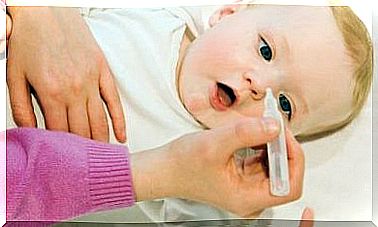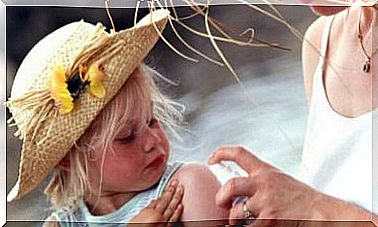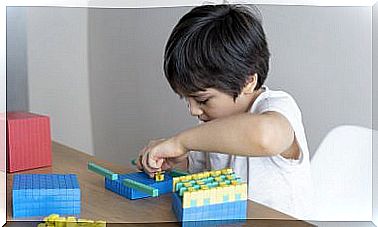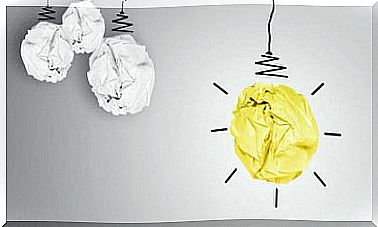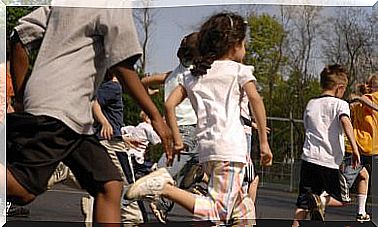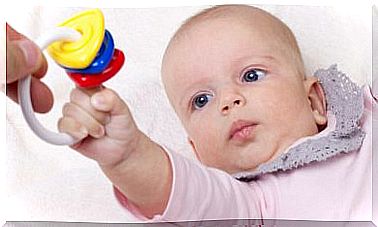Pancreatitis In Children

Pancreatitis in children is a disease capable of putting any of our children in a critical situation. Besides causing a lot of discomfort to the child, it can lead to a series of long-term complications if it is not treated and controlled in time with a specialist doctor.
Pancreatitis is a condition that occurs when the pancreas becomes inflamed. This causes a lot of pain and causes a state of irritability in the child. It occurs acutely and idiopathically, that is, it can last for a short time and without apparent cause.
The pancreas is an organ found in the upper abdominal area, behind the stomach. Chemical substances called enzymes are produced in it, which are necessary to digest food. Most of the time they are only active after reaching the small intestine.
When enzymes are activated within the pancreas, they digest all of its tissue. This causes inflammation, severe pain in the abdomen and back, bleeding, vomiting, fever, damage to the organ and its blood vessels. This is what is known as pancreatitis.
What can cause pancreatitis in children?
- Have a trauma to the belly, such as blows, falls, among others.
- Congenital abnormalities in the pancreas.
- Bile duct obstruction.
- Viral infections, such as mumps and Coxsackie B virus.
- Elevated levels of fat in the blood, known as triglycerides.

- Side effects of medications such as anticonvulsants, chemotherapy, or some antibiotics.
- Organ or bone marrow transplant.
- Cystic fibrosis.
- Diabetes type 1.
- Overactive parathyroid gland.
- Cronh disease or a disorder in which the immune system attacks and destroys healthy tissue in the body by mistake.
- Virus infections account for 40% of pancreatitis cases in children.
Types of pancreatitis
Pancreatitis comes in different types. Acute, for example, has a sudden onset and is usually short-lived. The chronicle develops gradually and reappears. Although it is very rare in children, it can also occur due to hereditary burden.
Diagnosis of pancreatitis in children
If pancreatitis is suspected, the first thing we should do is take the child to the doctor so that he can indicate amylase or lipase blood tests. These studies will determine if the enzymes made by the pancreas are in normal concentrations or levels.
If the levels of these enzymes are higher than normal values, the pediatrician will probably request an abdominal ultrasound to detect possible inflammation, obstruction or stones in the pancreatic duct that connects with the first part of the duodenum among other anomalies.
It is also advisable to order a CT scan of the abdomen, which uses x-rays and computer technology to produce more detailed images of the internal organs of the body. This will help confirm whether or not the child has pancreatitis.
Treatment for childhood pancreatitis
In many cases, pancreatitis gets better on its own. Sometimes your pediatrician recommends a diet low in fat and eating plenty of fluids. This makes the pancreas less likely to be irritated and helps it get better more quickly.
Children with more severe cases of this ailment can end up dehydrating, so it is best that they spend time in the hospital under strict observation.
Treatment for them involves resting the pancreas, and this is achieved with the administration of fluids and medications intravenously, without the child ingesting any type of food.

How to differentiate pancreatitis from stomach pain?
The main difference between pancreatitis and a stomach virus or other digestive system disease is the intensity of the abdominal pain. Children who are affected by this pathology have strong stitches in the upper abdomen, which make it difficult for them to remain standing or sitting.
Because of pain, little ones always try to adopt a fetal position for more comfort and relief. From the third day of illness, the ailments tend to intensify and the child becomes irritating. It is there when parental support and good medical treatment are necessary to get out of this uncomfortable health situation.
Pancreatitis in children is usually more common than you think. For whatever reason, this can manifest and affect the child in a subtle or aggressive way, so we must be very attentive to the symptoms and go to the doctor as soon as possible. Likewise, we must avoid self-medication.

